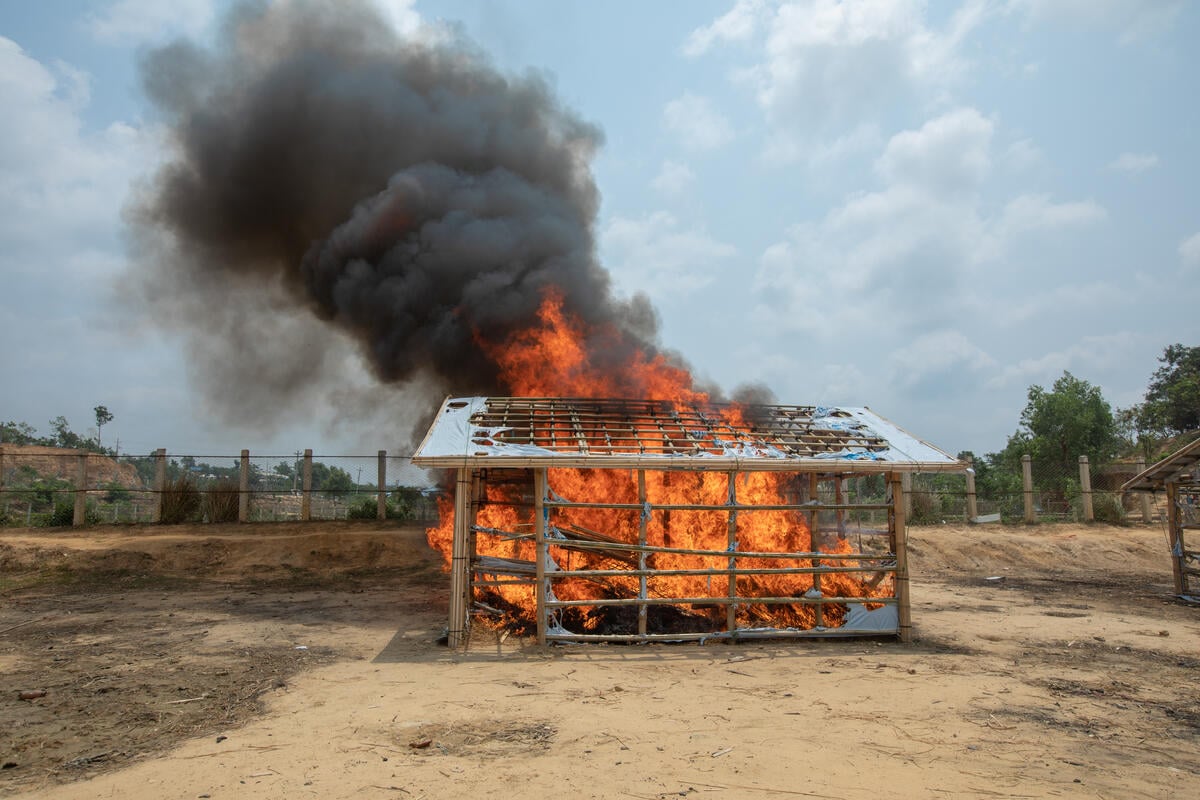Exiled as a child, Sahrawi grandmother still longs for home
When Mbareka fled the violence of the Western Sahara War with her family as a young girl in 1975, she could never have imagined that she would become a grandmother while in exile.
Now in her mid-fifties, she lives in Smara refugee camp – one of five camps hosting refugees from Western Sahara in the remote desert of south-western Algeria. The small family comprises her husband Ali Mohammed, now old and weak, her daughter Ghaitna and her husband, and their young son Abdullahi, aged two.
The family is split between a mud-brick house and a traditional tent that was provided eight years ago by UNHCR, the UN Refugee Agency. The lifespan of the tents is four years, but while UNHCR used to provide around 3,000 new tents per year to residents of the camp, this year it is distributing just 1,000 due to funding cuts.
“We do everything in here,” Mbareka said, sitting cross-legged on the red carpeted floor of the long, shady tent. “Sleep, eat, drink tea, receive guests. They are part of our culture. If you offered an old person here a villa or a tent, we will choose the tent.”
The tents are suited to the harsh desert environment that the refugees must cope with, better able than the mud huts to cope with the strong winds and heavy rains of winter and fierce heat of summer.
But life in the camp is hard. Mbareka spends time every day making repairs to the old tent, and the evidence is visible in her calloused hands. It is not traditionally a job for the older generation, but the young women in the camps are not as familiar with this essential skill. “But some places are too worn to even use a needle,” the matriarch explains.
“Every day is a challenge, and we will have this challenge until we go back.”
Shelter is not the only challenge facing families here. For water storage, Mbareka’s family is using a tank in which algae grows, significantly affecting water quality. She would prefer to have a cement tank, but these are expensive for private purchase, and UNHCR can only provide a small number every year due to funding constraints.
The food assistance they receive cannot be stretched to last the whole month, so the family does what it can to fill the gap. They have no livestock, and cannot afford to buy meat more than once every month or two. Without a fridge, what little they have quickly spoils. “Every day is a challenge, and we will have this challenge until we go back” home said Mbareka.
Despite their situation, Mbareka – like most Sahrawi – is resilient. She finds the positives, even in her protracted exile in an inhospitable environment. She appreciates the calm of the desert, and cherishes the good relations she has with her neighbours. “We have a very stable atmosphere.”
After more than 40 years, the Sahrawi people are still waiting for a political solution to their situation. Most Sahrawi refugees were born in the camps, never having known their homeland. Mbareka is one of those who remembers life before exile. “I miss the air, and the earth,” she said.
She recalls the long, arduous journey by foot as her family made its way to Algeria to seek what they thought would be only a temporary refuge before their eventual return. “At one point, I couldn’t walk anymore, so my mother lifted me up and put me on the goats that we were traveling with, and the goats had to carry me.”
Describing her hopes and fears, Mbareka said simply: “I hope to go home before I die, and I fear for my daughter, my son-in-law, and for Abdullahi – that they will stay here and grow old. My fear is the same as everyone’s here, that we will stay here and be forgotten.”










